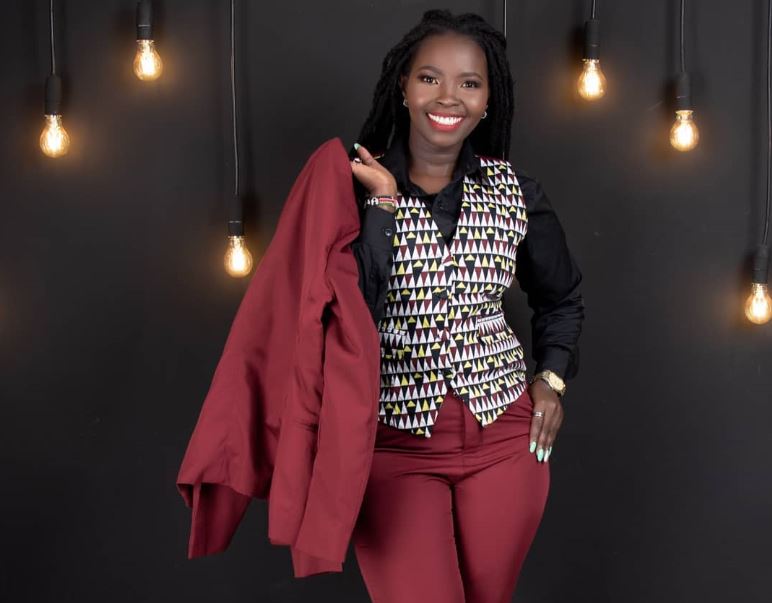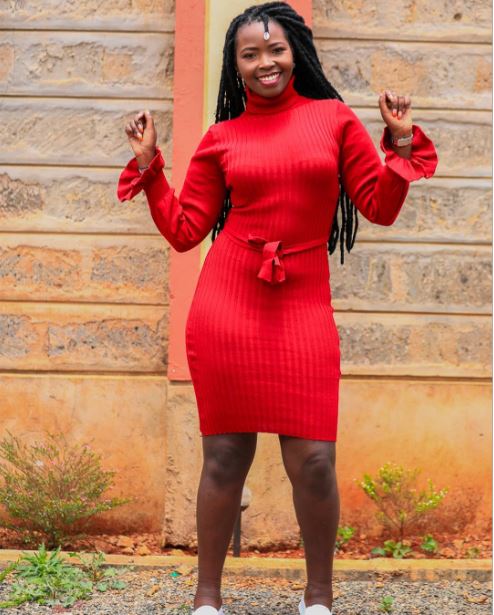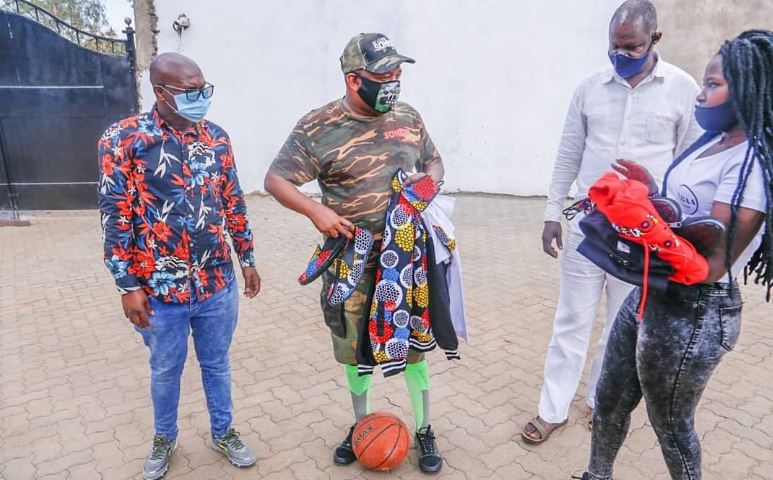 As the world observed Aids Day on December 1, fashion designer and CEO of clothing line Pabaa Collections Cleopatra Machiratalked to Spice Magazine about her clothing line and her experience living with HIV.
As the world observed Aids Day on December 1, fashion designer and CEO of clothing line Pabaa Collections Cleopatra Machiratalked to Spice Magazine about her clothing line and her experience living with HIV.
Why is this day special to you?
It’s primarily because 27 years ago I was born with the Human Immunodeficiency Virus.
My growing up was quite okay until my mum passed on in 2001 when I was just eight years old.
How did this change your life?
At first, I was too young to notice anything. I experienced complications here and there throughout my primary school life hence I used to be in and out of the hospital.
I would question myself why I was different, and there is a time I remember our teacher told me to be taken to a certain hospital, which I later came to learn was specialising on HIV/Aids treatment.
Another instance we had an argument with my classmate and she courageously told me that I can’t tell her anything, since my mum had died of Aids. This hurt very deeply.
How did you come to know about your status?
In 2007, my grandma accompanied me to my “normal” chest clinic. I sensed some tension between her and the nurse, so I asked what was happening, and from nowhere the nurse told me that she wanted to test me for HIV.
I just smiled and asked them why and what for? Seeing the shock on my face, the nurse took it upon her to assure me it’s just a test to confirm something, but I was confused.
Deep down I was confident I was okay, because I had not engaged in sexual activities, but did not know about the mother-to-child infection.
We had a conversation that I merely said a word and I was enrolled in the Comprehensive Care Clinic where I was immediately put on antiretroviral drugs.
How was your school life after that?
I received moral and ethical support from my family, something I cannot trade for anything.
Same year, I sat for my Kenya Certificate of Primary Education and passed, joining high school, and this time, a boarding school on a special diet.
My high school days were not a walk in the park. While in Form Two in 2009 I got infected with Tuberculosis B and this was bad for me.
I lost so much weight within a month, but after getting treated I was home for three days where my step mum took care of me.
I would be on and off hospital until I completed my O-levels. When I joined university, I opted to study Public Health, specialising in Community Health and HIV Management.
Campus life got the better part of me and at some point, I defaulted from taking my medication.
I felt like I had had enough of everything and I needed a break. Apart from that, peer influence had me doing drugs and at one point used my school fees to fund that fancy lifestyle.
Of course, it got me into trouble with my folks several times. While still in school, I started volunteering at a nearby hospital and the staff there was very welcoming and even made me understand my status better and after a while, I was part of the counselling team where I’d talk to fellow youth about HIV/Aids.
How was Pabaa Collections born?
While living with my uncle in Nairobi, I befriended a girl who was making clutch bags, and urged her to teach me. It was my way out of troubling thoughts and also to keep myself busy.
I continued practicing until my aunt bought one piece and later her friends started ordering and that’s how my journey as a designer started.
The rest came from my own creativity and I started diversifying on different merchandise.
At some point, I got an order from a supermarket and that is when I realised the business could be huge.
With all the challenges I was facing, this was something that felt different; the resilience and the resolve that I had put into it was a way of escaping some social issues including stress and peer pressure.
From there, there was no looking back for me, as I opened up a shop where I would work from and sell my merchandise.
I started getting social media buzz around my brand, as celebrities bought and posted my products.
All this time, I was on “medical leave” until one of my friends who knew about my status, saw how badly my body had deteriorated and took me back to the hospital.
I continued with the mentorship and medication until I got undetectable viral load.
My brand also got bigger that I have been able to make business contacts outside the country and dressed some senior figures including Nairobi Governor Mike Sonko.
How have you dealt with stigma?
Yes, stigma is big and it’s born out of ignorance or misinformation. A while back, society was preached to that once you are infected, you are dead.
Personally, I have met people whom I thought were friends that would use my status as a rumour tool and again there is this guy who wanted to date me and when I disclosed my status, he sprinted. But I put God first and always believe in myself even when no one does.










